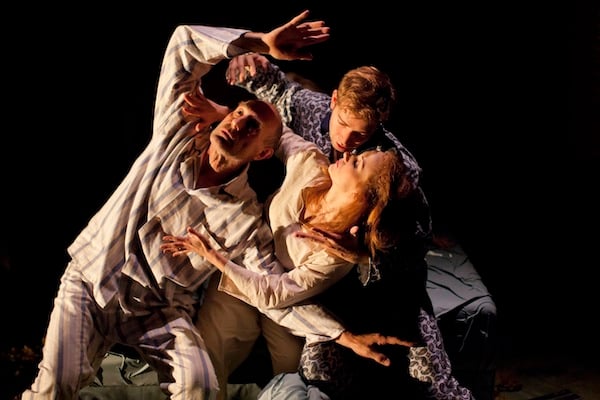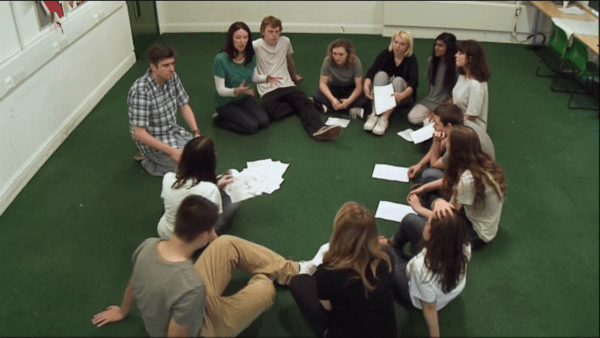31 January 2022
The key 21st Century Skills to help students thrive
Hannah Marr
Director of Education, Digital Theatre+
21st Century Skills. Future Readiness. Life Skills. Global Citizenship. The Four Cs. Higher Order Thinking Skills (HOTS). Even the longer-standing interpersonal skills or soft skills. All of these are terms that we hear regularly, often somewhat interchangeably. But what do they really mean and, more specifically, what do they really mean for the English or Theatre classroom?
Broadly, of course, all of these are concerned with the skills students need to succeed and make a positive impact, both within school and beyond the classroom, and throughout the rest of their lives. They acknowledge that education is not just about acquiring knowledge – as important as that is – it’s about building and developing foundational skills, and equipping students for the future. That future may be the next step in their learning journey; the next stage in their education; employment; but also recognises that the shape of that future may be increasingly difficult to predict.
To try to keep things simple, I’m going to pick The Four Cs as a reasonable proxy for many of the other terms in the list we started with. They are:
- Critical thinking
- Creativity
- Collaboration
- Communication
Let’s look at each in turn – although of course, they are all interrelated.
Critical thinking
Critical thinking is essential for understanding and interacting with the world. It encompasses sub-skills such as analyzing, comparing and evaluating, all of which are key skills in any classroom. Within the English classroom, for example, you’re asking students to apply critical thinking to specific texts in order to both understand and respond to them.
Plays, and key scenes from plays, are particularly helpful in encouraging students to think critically about the text because students get to consider both the words on the page and perhaps authorial intent, as well as the director’s and actors’ interpretations of those words when they watch the play. One step further is when they are able to view two or more productions of the same play, and compare different interpretations, and the light that sheds on the play text and its characters and themes. Our Compare and Contrast resources on Digital Theatre+ are a great tool to support these kinds of analysis.
Creativity
Creativity encompasses so many things, from artistic endeavours through to finding a new way to solve a problem. Both ends of the spectrum and everything in between are essential in, and fostered by, the Theatre and English classroom.
 Frantic Assembly's Lovesong © Johan Persson
Frantic Assembly's Lovesong © Johan Persson
One of the most powerful things about the study of Theatre is that students are exposed to so much creativity through watching productions. There’s the immediately visible creativity of the actors on the stage, as well as the creative vision of roles such as the director and designers, that all work together to immerse the audience in the world of the play, and also bear deep analysis to understand exactly how and why they’ve had a particular impact. Then as well as experiencing the creativity of others, students are encouraged to use that as inspiration for their own creative output, and reflect on the creative work of their peers. This cycle of inspiration, reflection, creativity and further reflection is found in so many areas of life and work – an improv class is just the beginning.
Collaboration
Strong collaboration and teamwork are key features of so many of our successes in life: team sports, work projects, family life. So it’s no surprise that it’s one of the first skills students need to learn in the Theatre classroom; as well as a skill that they will need to continue to hone – even and especially in challenging circumstances with tight deadlines and perhaps personality clashes. Putting on a play is inherently collaborative, whether it’s a small ensemble piece or everyone working together on the school production.
 Shakespeare in Your Space
Shakespeare in Your Space
The interviews with cast, creatives and crew on Digital Theatre+ offer great insights and tips into how this works in a professional theatre environment, where so many different roles, perspectives and skillsets have to come together to create and deliver a successful production.
Communication
Successful collaboration relies on great communication. Speaking and listening are both recognised as core skills within the study of English, as is writing clearly and effectively for different audiences. While writing and presentation skills may be more visibly studied, listening skills are of course equally important and can be developed through group work, note-taking exercises and providing peer feedback on presentations, among other activities. The Unlocked: Speaking and Listening Series on Digital Theatre+ looks at eleven key aspects of communication, including one-to-one communication and group communication, and evaluating a speaker.
Further reading
Related blogs
Teaching English: top 5 blog posts of 2022
From key literary topics such as poetry and Shakespeare to 21st-century skills like speaking and...
Read moreHow Digital Theatre+ Supports Your Seal of Fine Arts
In schools across the US, students are discovering a passion for the arts as they work towards...
Read more5 tips for bringing life skills into your classroom
Preparing students for life outside the classroom (be that their personal lives, college,...
Read moreGet the latest teaching tips straight to your inbox
Explore free lesson ideas and inspiration, education news, teaching trends and much more by signing up to regular blog updates!





.png)